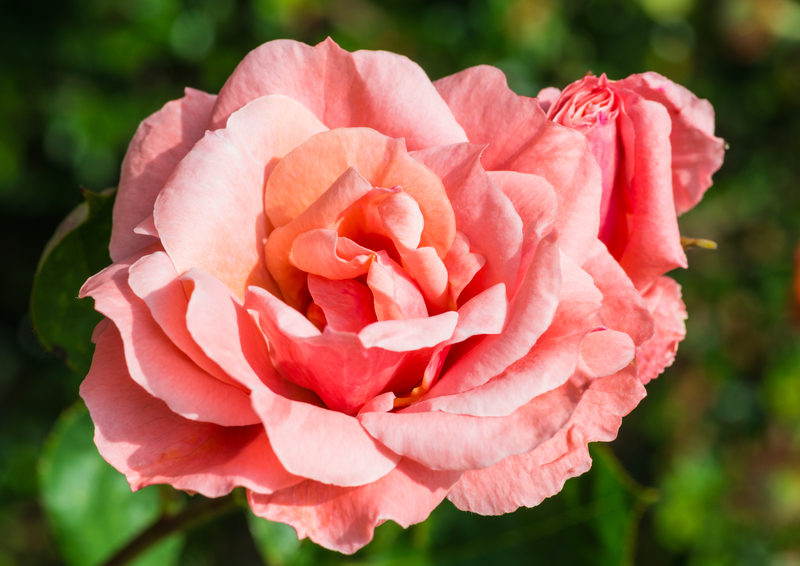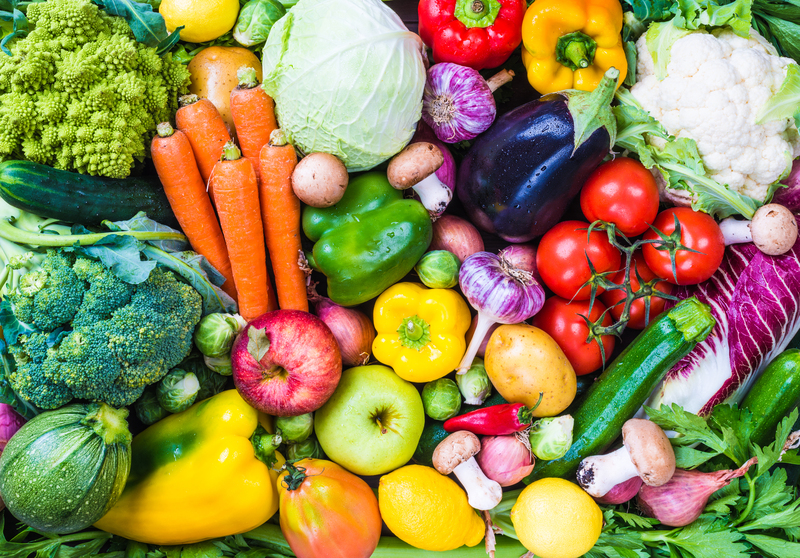Sow the Seeds of Success: 9 Gardening Tips for Those Just Starting Out
Posted on 08/06/2025
Sow the Seeds of Success: 9 Gardening Tips for Those Just Starting Out
Gardening is more than just a hobby - it's a way to reconnect with nature, reduce stress, and enjoy the fruits (and vegetables!) of your own labor. If you're new to gardening, you might feel a bit overwhelmed, but don't worry! With the right guidance, anyone can sow the seeds of gardening success. In this beginner's guide, we share 9 essential gardening tips for those just starting out on their green-thumb journey. From choosing the perfect spot to understanding soil science and embracing the joys of regular care, let's plant the roots for a blooming, beautiful garden that will grow along with you.
1. Start With a Simple Plan
The first step towards gardening success is starting small and realistic. Don't overwhelm yourself by trying to transform your entire yard overnight. Choose a manageable plot - even a few containers or raised beds will do. Sketch out your garden's layout, considering sunlight, water sources, and pathways. A clear plan helps avoid frustration and makes it easier to track progress.
- Tip: Planning your garden now will save time and resources later. Consider growing plants together that thrive in similar conditions.

2. Select the Right Location
Location can make or break your garden's potential. Most vegetables and flowers need at least six hours of direct sunlight. Observe your outdoor space throughout the day to find areas that receive constant light. If space is limited, container gardening on a sunny balcony or windowsill is an excellent option for beginners.
- Tip: Avoid spots under tall trees or roof overhangs where rain and sun are limited.
Consider Microclimates
Every garden has microclimates - small areas where sunlight, shade, wind, or moisture differ from the rest of the space. Understanding your garden's microclimates helps you place plants in their ideal environment and maximizes your gardening success.
3. Choose Plants Suitable for Beginners
When you're just starting out in gardening, selecting the right plants can set you up for an easy win. Opt for varieties known for being low-maintenance and resilient. Some popular beginner choices include:
- Vegetables: Lettuce, radishes, bush beans, carrots, and zucchini.
- Herbs: Basil, chives, oregano, mint, and parsley.
- Flowers: Marigolds, sunflowers, zinnias, petunias, and cosmos.
Check your region's growing zone to ensure your selections will thrive in your local climate.
Why Native Plants Matter
Native plants have evolved to thrive in your local soil, weather, and ecosystem. By choosing these, your odds of growing a successful garden increase, while requiring less effort, water, and pest control.
4. Prepare Quality Soil
Healthy, fertile soil forms the foundation of every successful garden. Take time to test your soil for pH and nutrient levels, which you can do with affordable kits from garden centers.
- Loamy soil with good drainage and organic matter promotes robust plant growth.
- Amend sandy soils with compost to retain moisture and nutrients.
- Break up clay soils by adding aged manure or coarse sand for better drainage.
Tip: Never walk on garden beds after prepping the soil; compacted soil hinders root development.
Composting Made Simple
Compost is garden gold! You can easily start composting kitchen scraps and leaves, creating a supply of free nutrients that will help your garden thrive.
5. Water Wisely
Knowing when and how to water your garden can be the crucial difference between success and struggle, especially for beginners. Overwatering is just as harmful as neglect.
- Water early in the morning to prevent evaporation and fungal diseases.
- Use a soaker hose or drip irrigation to target the roots, where water is needed most.
- Check soil moisture by sticking your finger an inch deep - if it's dry, it's time to water.
Remember: Deeper, less frequent watering is healthier than daily sprinkles.
6. Mulch For Health and Growth
Mulching is a game-changer for any garden. Mulch retains moisture, suppresses weeds, adds nutrients, and improves soil texture as it breaks down. Organic mulches, such as straw, wood chips, or shredded leaves, are fantastic choices for beginners and seasoned gardeners alike.
- Spread a 2-3 inch layer around your plants, being careful not to pile mulch against stems.
- Renew mulch periodically to keep your garden beds protected.
Bonus: Mulch can beautify your garden and make paths less muddy!
7. Start Small, Grow Gradually
Patience is the gardener's best friend. It's tempting to buy every plant at the nursery, but begin with a few easy-to-manage crops while you're learning. This approach allows you to master the basics before expanding.
- Keep a gardening journal to note what works and what doesn't.
- Add new varieties each season to keep your garden exciting and rewarding.
8. Watch for Pests and Problems--Naturally
Every garden faces challenges, but beginners can prevent many common problems with a bit of attention. Regular inspections for pests and disease let you catch and address issues early, minimizing damage.
- Encourage beneficial insects by planting pollinator-friendly flowers.
- Hand-pick pests like caterpillars or use soap sprays for softer solutions.
- Practice crop rotation to minimize soil-borne diseases.
Tip: Healthy plants resist pests and disease more effectively! Feed and water them well.
9. Learn From Each Season
Even the most experienced gardeners make mistakes and encounter surprises. Don't let setbacks discourage you. Instead, treat each gardening season as a valuable opportunity to learn and grow.
- Attend local garden clubs or workshops to gain firsthand tips from seasoned growers.
- Read gardening books and follow credible gardening websites.
- Ask neighbors about their successes and challenges; local wisdom is invaluable.
Remember: Patience, observation, and ongoing curiosity are the true seeds of gardening success.
Bonus Tip: Enjoy the Journey
Above all, have fun with your gardening adventure! Celebrate every sprouting seed, colorful bloom, and harvest basket. Gardening nurtures not just plants but also confidence, mindfulness, and a lasting connection to the natural world.
Take photos to track your progress from beginner to seasoned gardener. Share your achievements with friends and family. And always take time to relax and enjoy the beauty you've cultivated - you've truly sown the seeds of your own success!

Frequently Asked Questions for New Gardeners
What is the best time of year to start a garden?
In most regions, late winter to early spring is ideal for starting seeds indoors or sowing cool-season crops outdoors. Always check your local frost dates to know when to plant each variety for optimal results.
How often should I water my garden?
It depends on weather, soil type, and plant needs. As a general rule, most gardens need about 1 inch of water per week, including rainfall. Adjust as needed--sandy soil may require more frequent watering, while clay holds moisture longer.
Can I garden if I only have a balcony or small patio?
Absolutely! Container gardening is perfect for balconies and patios. Choose pots with good drainage, fill with quality potting soil, and select compact or dwarf varieties suited for small spaces.
Conclusion: Every Gardener Was a Beginner Once
No matter your starting point, anyone can cultivate a thriving, beautiful garden with the right approach and a touch of passion. These gardening tips for beginners are designed to help you sow the seeds of lasting garden success and enjoy each step of your journey. Remember, the most important thing you'll grow is your own love for gardening--so get out there and let your green adventure begin!
- Start small and dream big.
- Care for your soil, water, and plants consistently.
- Keep learning and adapting each season.
Happy gardening! Your journey as a new gardener starts now--watch as you turn every seed into success and every plot into possibility.
Latest Posts
Weathering the Wind: Garden Strategies That Work
Dog-Friendly Gardening: A Pet Owner's Guide
Create Impressive Garden Features with Hedge Trimming

